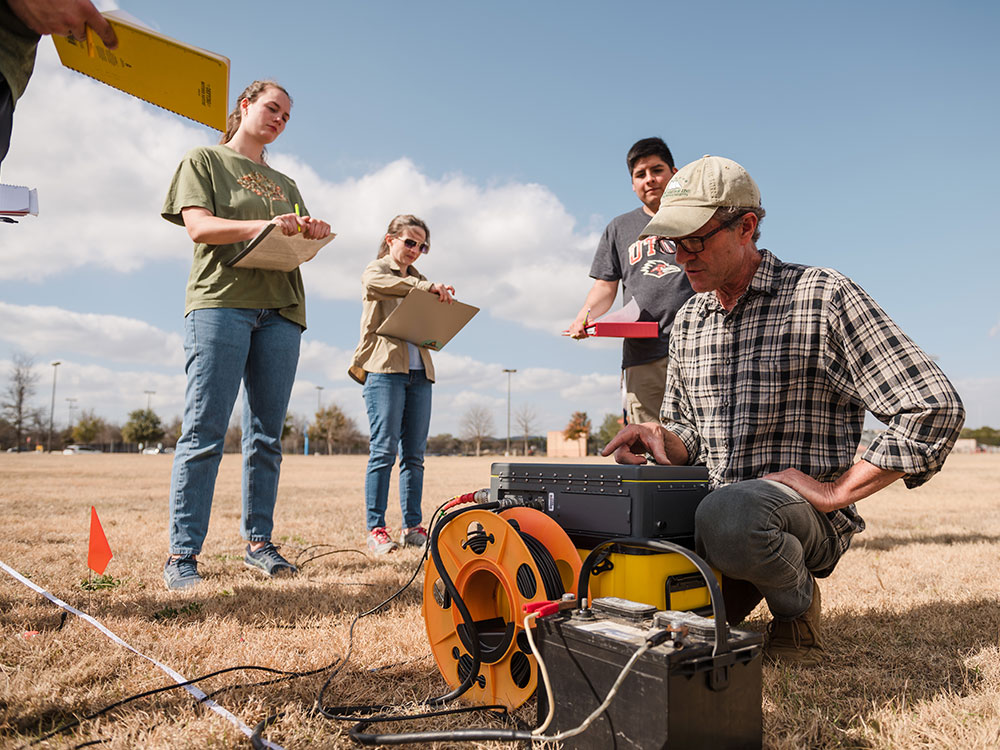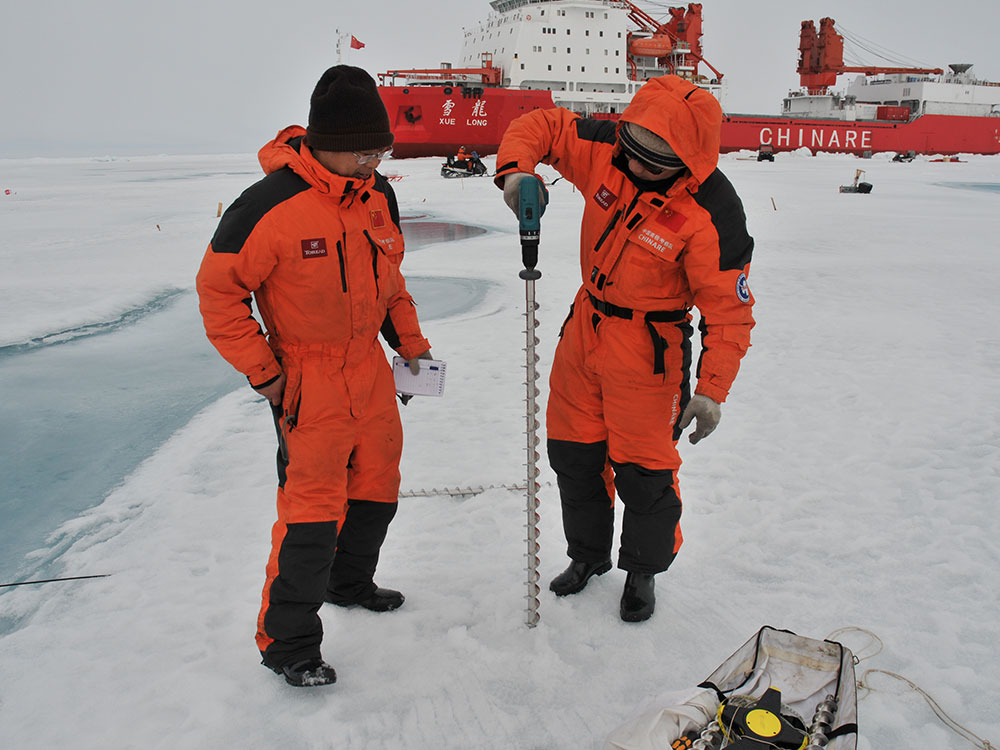
Why Pursue a Master's Degree in Geoinformatics
The cross-disciplinary nature of this program utilizes spatial data (geographic and/or remote sensing data) to solve real-life problems related to locations and changes in space and time, with wide applications in oil and gas industry, water resources and management, land use and land cover, climate change and cryosphere, archaeology, political science, urban planning and transportation, demography, public health, disaster response and relief effort, geospatial intelligence, and cyber-security.
Big data and cloud computing are the two new aspects of the program’s collaborative research and applications, since geospatial and remote sensing data are big in nature and need advanced technology and methods for data mining, processing, storing, sharing, and distribution.

Research
The earth system is dynamic with its four components (hydrosphere, atmosphere, geosphere, and biosphere) constantly changing and interacting with each other. The Department of Earth and Planetary Sciences faculty is conducting research in these four components, contributing to relevant journals in their fields.
Admission & Application Requirements
Applications are submitted through the UTSA Graduate Application. Please upload all required documents (listed below) on your UTSA Graduate Application. It is the applicant’s responsibility to ensure completion and submission of the application, a nonrefundable application fee, and all required supporting documents are on file with UTSA by the appropriate application deadline.
| Geoinformatics (MS) | ||
|---|---|---|
| Required Degree | Bachelor's Degree from an accredited college or university in the United States or have proof of equivalent training at a foreign institution. | |
| Minimum GPA | 3.0 (on a 4.0 scale) Departments may consider GPA of last 60 semester credit hours | |
| Coursework | Completed adequate credit hours or foreign institution equivalent coursework as preparation for the program. | |
| Transcripts* | Required from all institutions attended; international transcripts must be recorded/translated to English | |
| Credential Evaluation | Required if you have earned university-level credit from foreign institutions. Submit an evaluation of your transcripts from Educational Credential Evaluators (ECE) directly from the graduate admission application platform | |
| English Language Proficiency | 550 TOEFL Paper / 79 TOEFL Internet / 6.5 IELTS / Duolingo 100 | |
| Purpose Statement | Required | |
| Letters of Recommendation | 2 academic or professional reference(s) demonstrating your attributes for successful completion of this program (you will request these through the Graduate Admissions Application; let your recommenders know of your deadline to ensure submissions are on time) | |
| *Unofficial transcripts will be taken into consideration for admissions; however, if admitted into the program, you must submit official transcripts to the University. | ||
Application Deadlines
Applicants are encouraged to have their admission file completed as early as possible. All applications, required documents and letters of recommendation, if applicable, must be submitted by 5:00 PM U.S. Central Time on the day of the deadline. Deadlines are subject to change.
| Geoinformatics (MS) | |||
|---|---|---|---|
| Timing on Admission Decision: Completed applications will be reviewed for admission on a rolling basis. Decisions generally will be made and sent to applicants within 4 to 6 weeks of receiving the application. | |||
| Application Deadlines for: | Priority | International | Domestic |
| Spring 2025 | Not Available | October 1 | October 1 |
| Summer 2025 | Not Available | Not Available | Not Available |
| Fall 2025 | March 1 | June 1 | June 1 |
| Spring 2026 | Not Available | October 1 | October 1 |
| Summer 2026 | Not Available | Not Available | Not Available |
Funding Opportunities
Teaching and research assistantships are limited and awarded on a competitive basis. Individual faculty members may have opportunities for research assistantships or research fellowships and should be contacted directly.
For information about department scholarships, click below.
Learn moreCareer Options
UTSA prepares you for future careers that are in demand. The possible careers below is data pulled by a third-party tool called Emsi, which pulls information from sources like the U.S. Bureau of Labor Statistics, U.S. Census Bureau, online job postings, other government databases and more to give you regional and national career outlook related to this academic program.



 I'm Rowdy Bot, an AI-powered chatbot to help you quickly find information on this website and answer general questions.
I'm Rowdy Bot, an AI-powered chatbot to help you quickly find information on this website and answer general questions.